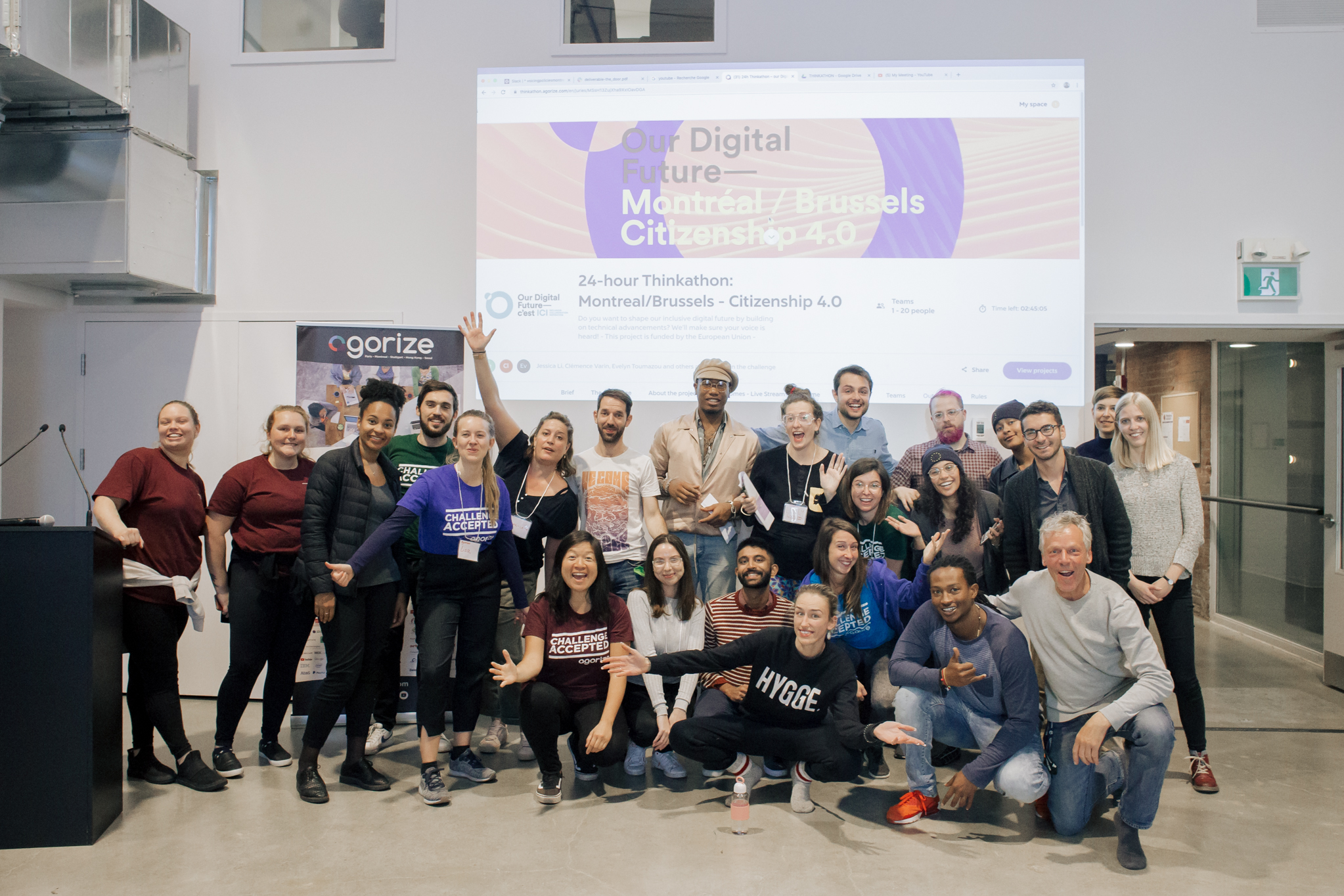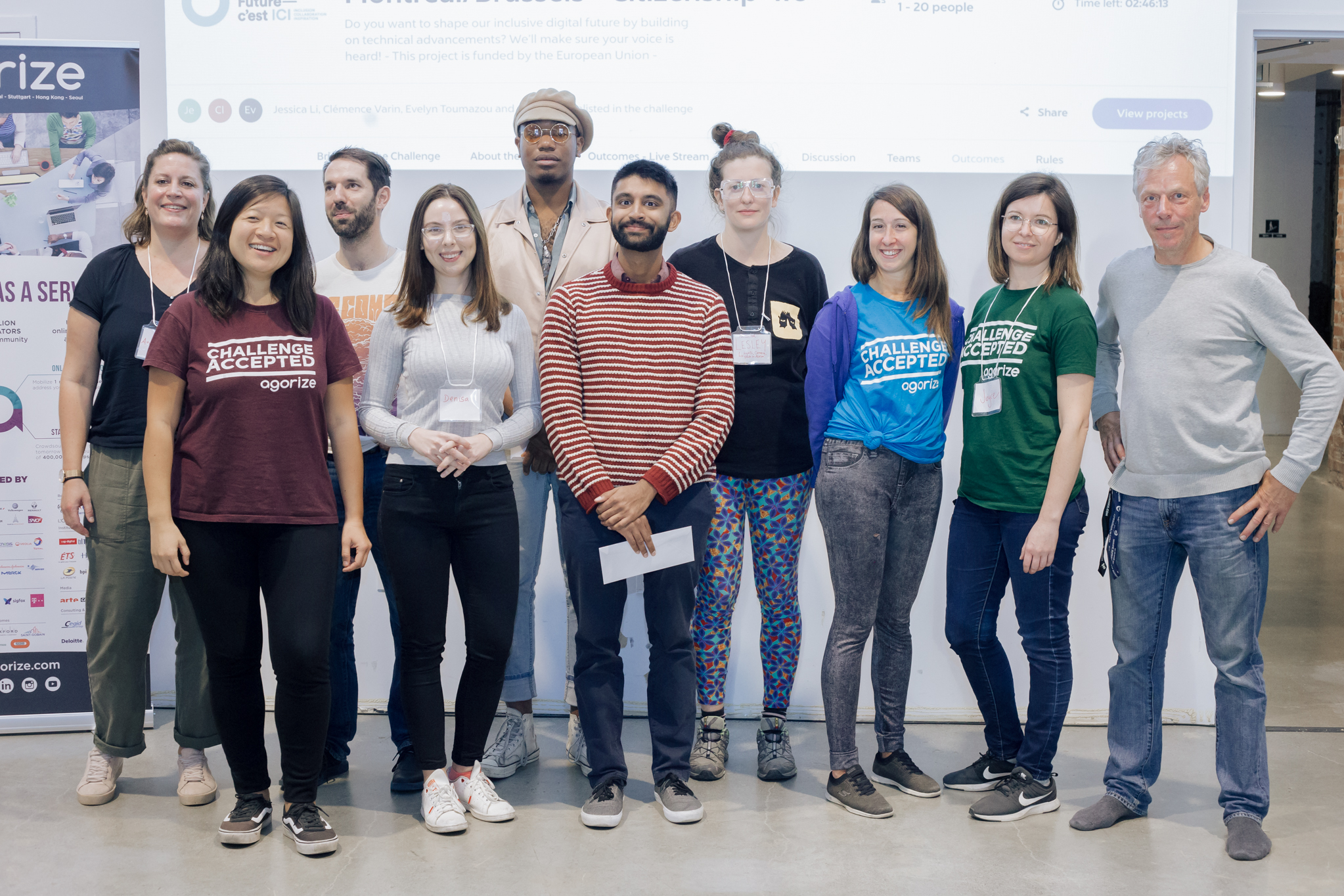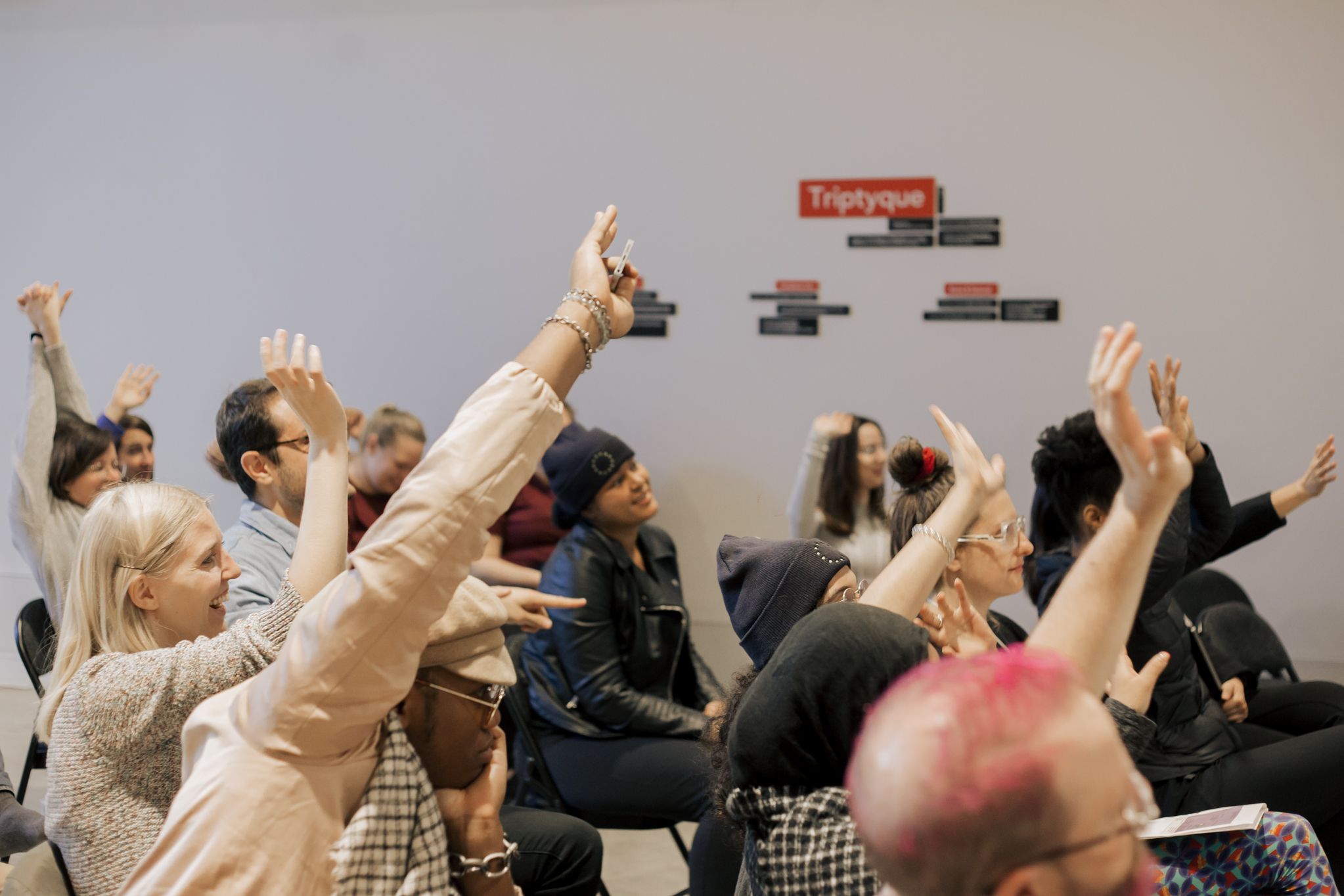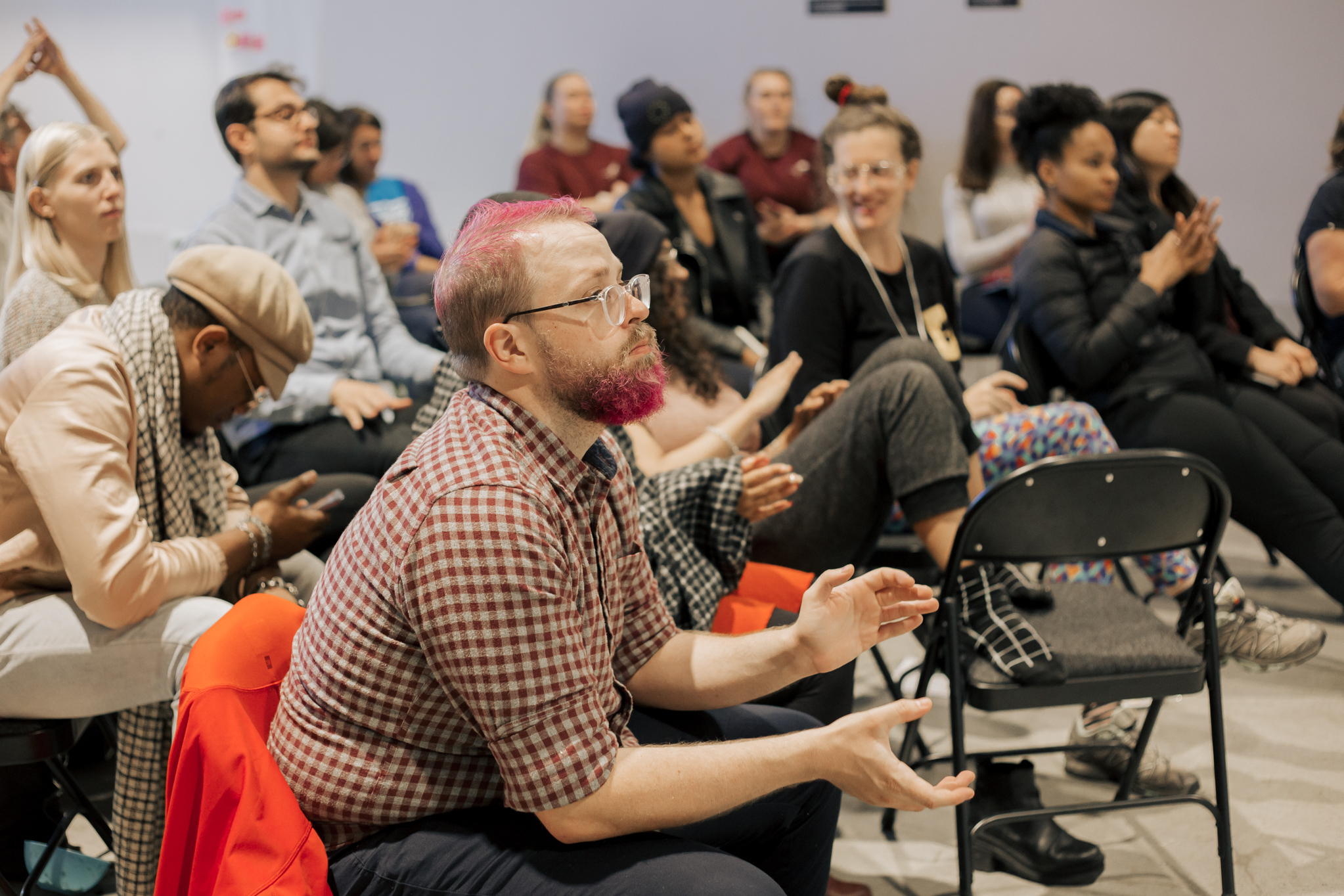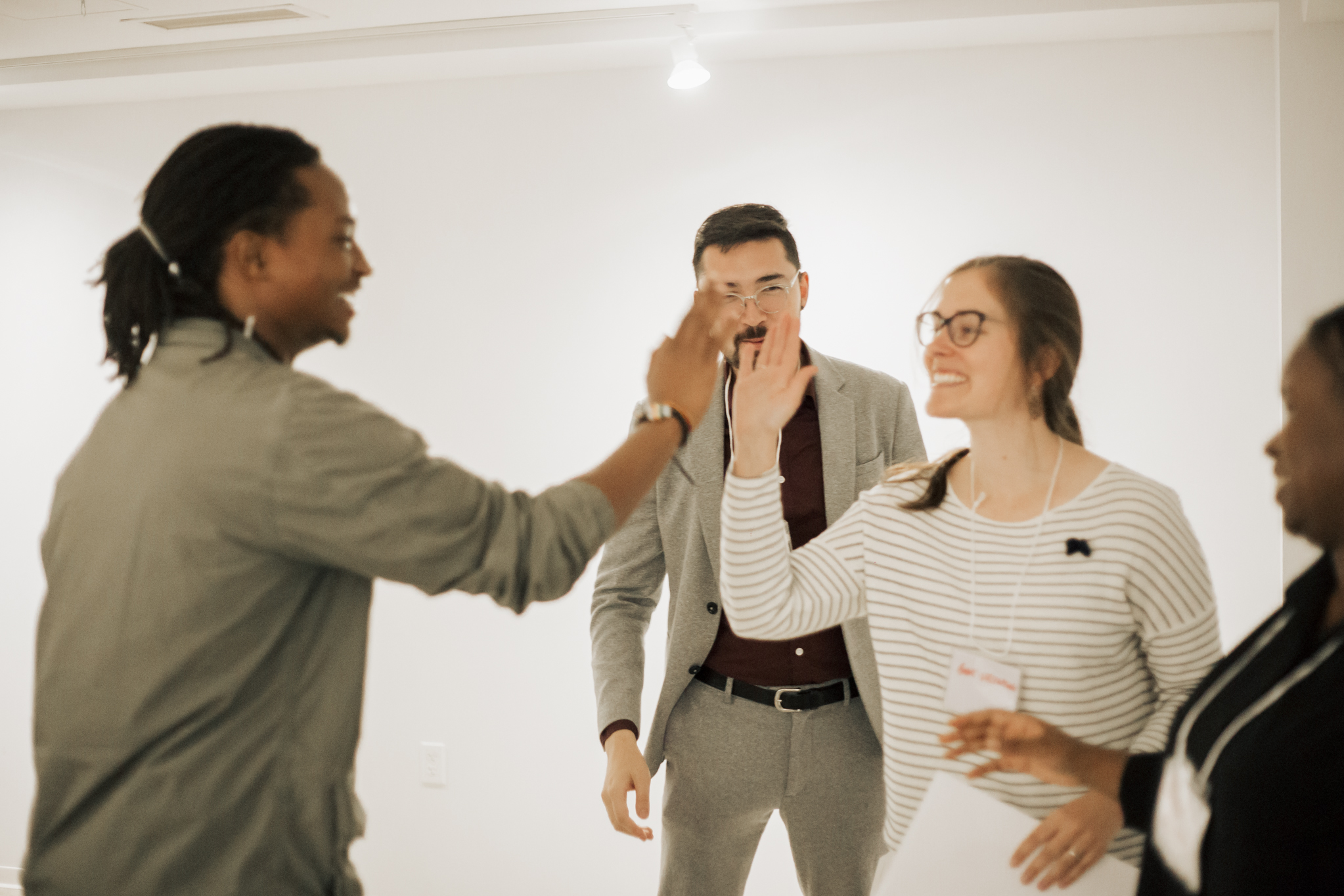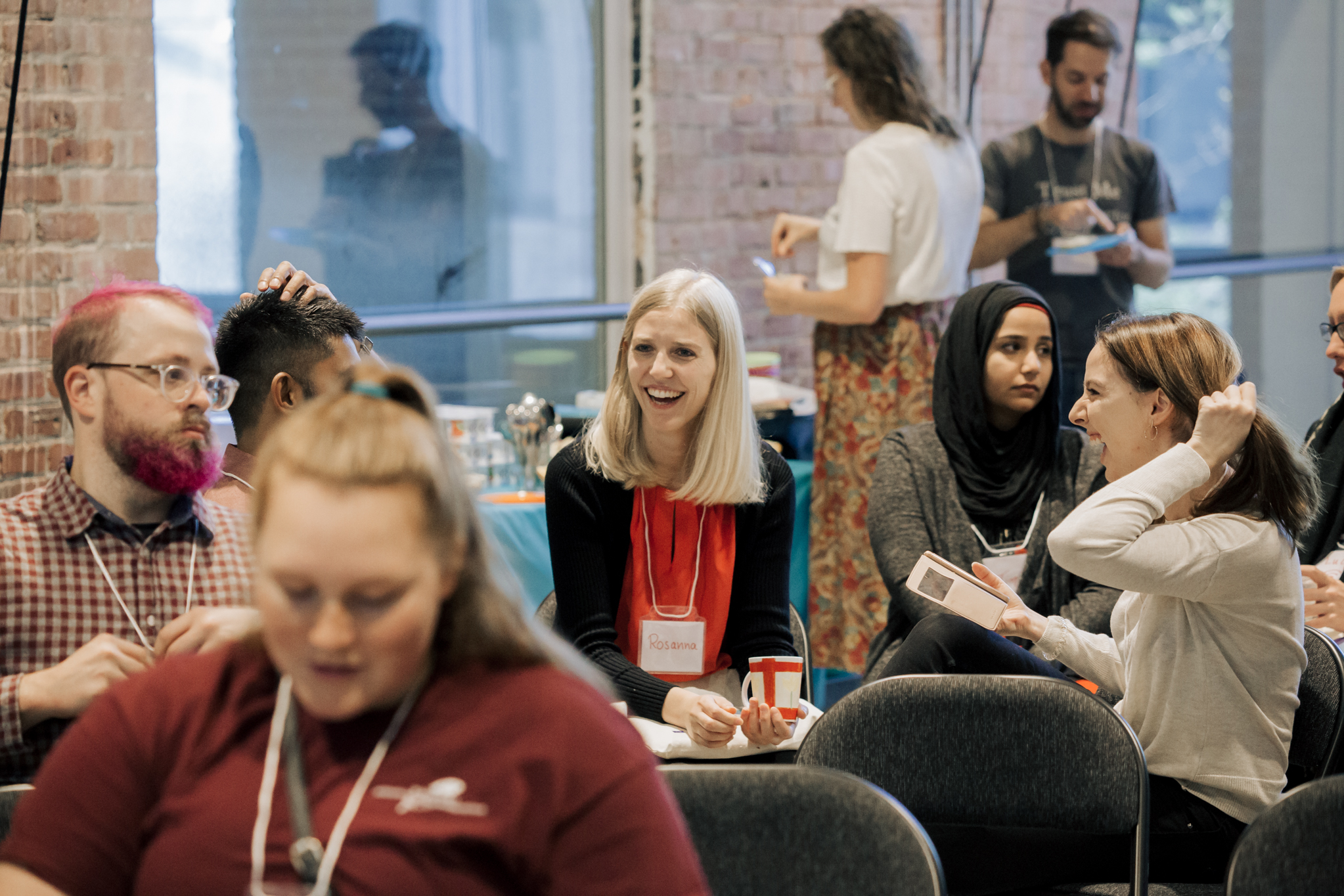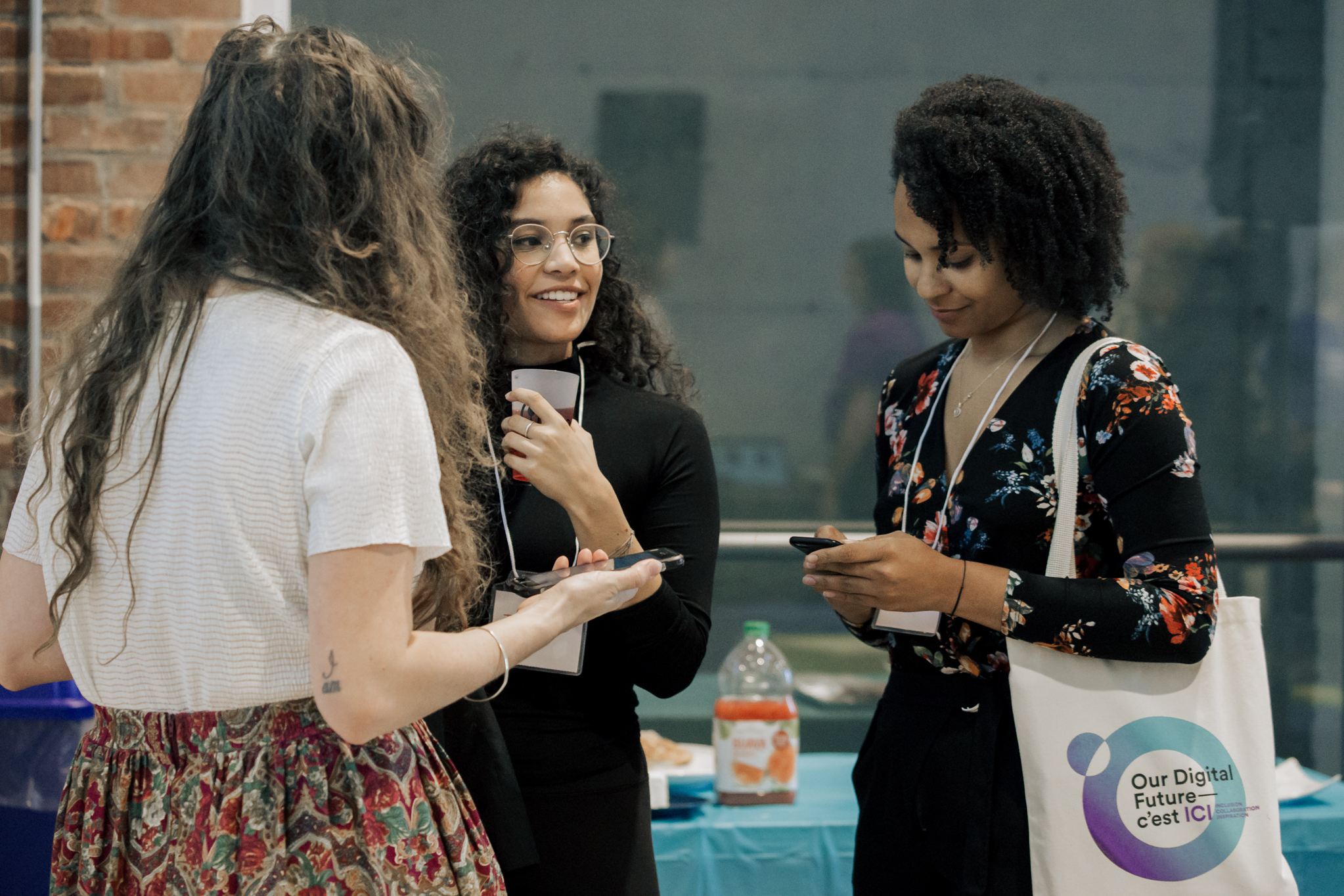
Impressions from the 24 Hour Thinkathon in Montreal/Brussels
What is a Thinkathon, you ask? A Thinkathon is like a hackathon but without computer programmers and software developers. The idea behind a Thinkathon is to connect people, in person and virtually, to think, collaborate, share ideas and innovate in order to find new approaches to some of the challenges we are facing today.
Between October 2019 and 2020, a series of six “24-hour Thinkathons” dedicated to different topics around digitalization will take place in different cities across Europe and Canada. To support local networks, and a transatlantic exchange at the same time, a Canadian and a European city are being paired for each event.
Montreal/Brussels: The first of six transatlantic (EU-Canada) Thinkathons
This first 24 Hour Thinkathon in Montreal and Brussels challenged young adults between the ages of 18 and 30 in Canada and Europe. Participation was possible online or on-site in Montreal or Brussels. Three working groups focused on a different mission during the Thinkathon which meant working with other young people in a working group while constantly digitally interacting with the matching working group in the partner city as well as with online participants. At the end of the Thinkathon, projects were presented and prizes were won – including a trip to Frankfurt!
The 24-hour Montreal/Brussels Citizenship 4.0 Thinkathon
Technological advancements are constantly reshaping our understanding of the world. The concept of citizenship is shifting as our environment is becoming more and more digital. As an essential aspect of citizenship, active participation in society is also affected by the digitalization, which presents new opportunities and challenges. Considering the technological advancements that have been, the mission was to develop and discuss recommendations to shape a modern form of citizenship in which people engage both individually and collectively.
These were the big questions that were tackled: What can we do to encourage active citizenship and minimize social exclusion in a digital context? How can technology be used to facilitate and increase civic and political participation? How can we create an inclusive society around active digital citizenship? Topics of discussion included the role of technology and digital citizenship, digital skills and social exclusion, surveillance and online civil liberties, general internet access for citizens, alternative models of digital participation, and living “off the web” to name a few.
For a theme like Citizenship 4.0, I believe that it is crucial to work together with different people because it is important to ensure that everyone (especially marginalized communities) get to participate in our society.
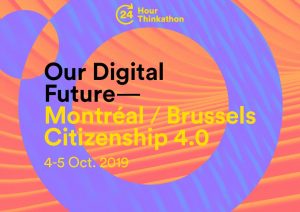
Badri Murali, the winner of the Frankfurt trip, described the Thinkathon experience as follows:
Participating in the Thinkathon was a fun and educational opportunity for me. I have always been interested in civic engagement, the world around me and how different communities exist and interact. More recently, I have become more and more interested in public policy and how it is used to create change in the world. When I came across the event’s website, I was immediately interested in participating; I like working collaboratively with people from different backgrounds and walks of life to work on projects together. For a theme like Citizenship 4.0, I believe that it is crucial to work together with different people because it is important to ensure that everyone (especially marginalized communities) get to participate in our society. The 24 hours together with my team and everyone else was a great experience; we listened to each other’s ideas, made suggestions and laughed a lot. It was also fun to see what the Brussels team was getting up to simultaneously; I enjoyed seeing how the other delegation approached the same challenge and the ways in which our suggestions were similar and different. For next year’s Thinkathon in Frankfurt, where I was chosen as representative of the Montreal Thinkathon, I am excited to share what the Montreal teams came up with and compare that with the other participants’ ideas. It will also be interesting to participate in this challenge with Toronto, the city where I grew up. I am very curious to see how both delegations will address the theme of culture and entertainment. It will be my first time in Europe, so I am very eager to visit Frankfurt and discover Germany.
All outcomes, thoughts, and opinions will be shared with European and Canadian policymakers.
The next 24-hour Thinkathon in Edmonton/Milan takes a look at socializing: As a crucial aspect of human nature, our health, and our well-being, Social Relations have completely changed as a result of technological advancements. Making connections faster and easier, it is often assumed that technology has an inherently positive impact on social relations – yet this assumption needs to be analyzed further, particularly as technology becomes more pervasive and the negative consequences become more apparent.
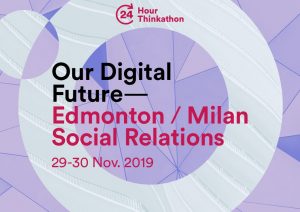
Further Thinkathons will look at smart cities, security, education as well as culture and entertainment. For more information on these Thinkathons, click here.
The project is organized by the Goethe-Institut, ThinkYoung and Carrefour Jeunesse Emploi NDG and funded by the European Union as part of its program, “EU-Canada Youth Transatlantic Civil Society Dialogues.”
